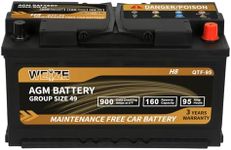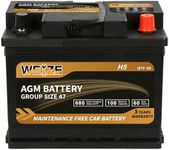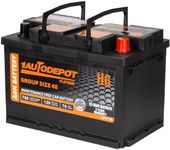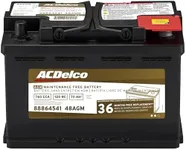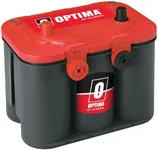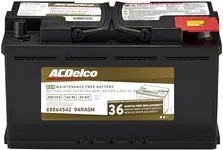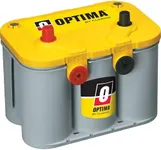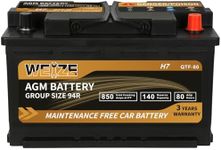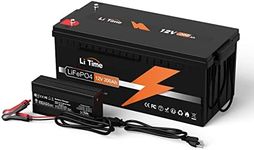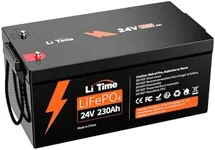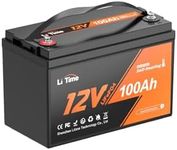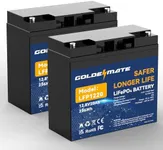Buying Guide for the Best Truck Batteries
Choosing the right truck battery is crucial for ensuring your vehicle runs smoothly and reliably. A good battery will provide the necessary power to start your engine and support all the electrical systems in your truck. When selecting a truck battery, it's important to consider several key specifications to ensure you get the best fit for your needs. Understanding these specs will help you make an informed decision and avoid potential issues down the road.Battery TypeTruck batteries come in different types, such as lead-acid, AGM (Absorbent Glass Mat), and lithium-ion. Lead-acid batteries are the most common and affordable, but they require regular maintenance. AGM batteries are more durable and maintenance-free, making them a good choice for trucks with high electrical demands. Lithium-ion batteries are lightweight and have a longer lifespan, but they are more expensive. Choose a battery type based on your truck's electrical needs and your preference for maintenance.
Cold Cranking Amps (CCA)Cold Cranking Amps (CCA) measure a battery's ability to start an engine in cold temperatures. This is important because trucks often operate in various weather conditions. A higher CCA rating means the battery can provide more power to start the engine in cold weather. If you live in a colder climate, look for a battery with a higher CCA rating. For milder climates, a lower CCA rating may be sufficient.
Reserve Capacity (RC)Reserve Capacity (RC) indicates how long a battery can supply power if the alternator fails. This is crucial for trucks that may have extended periods of idling or use electrical accessories frequently. A higher RC means the battery can provide power for a longer time, which is beneficial for long-haul trucks or those with many electrical devices. Consider your truck's usage and choose a battery with an appropriate RC rating.
Battery Size (Group Size)Battery size, or group size, refers to the physical dimensions of the battery and the placement of the terminals. It's important to choose a battery that fits your truck's battery tray and has the correct terminal locations. Check your truck's owner manual or the existing battery for the correct group size. Using the wrong size can lead to installation issues and potential damage to the battery or vehicle.
Maintenance RequirementsSome batteries require regular maintenance, such as checking and refilling the electrolyte levels, while others are maintenance-free. Maintenance-free batteries, like AGM, are sealed and do not require any upkeep, making them convenient for busy truck owners. If you prefer a low-maintenance option, choose a maintenance-free battery. However, if you don't mind performing regular checks, a traditional lead-acid battery can be a cost-effective choice.
WarrantyThe warranty on a truck battery can give you an idea of its expected lifespan and reliability. A longer warranty period often indicates a higher-quality battery. Look for batteries with a warranty that covers at least three years. This can provide peace of mind and protection against early failures. Consider how long you plan to keep your truck and choose a battery with a warranty that aligns with your expectations.

